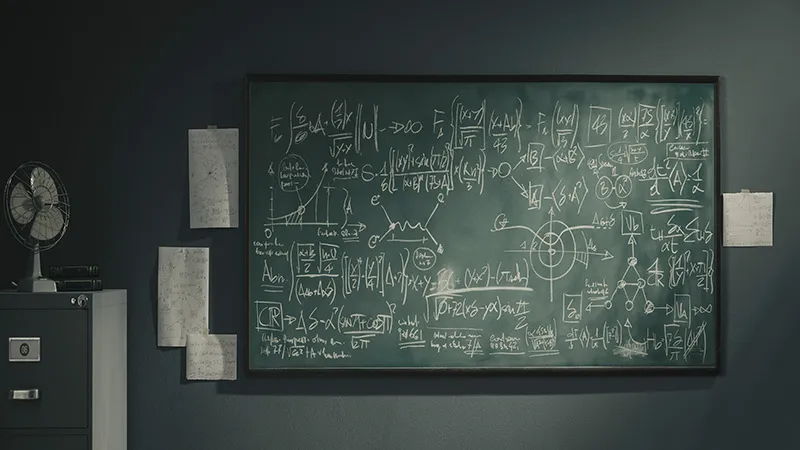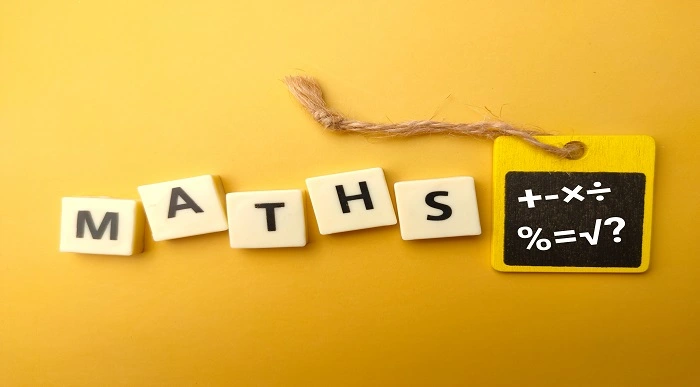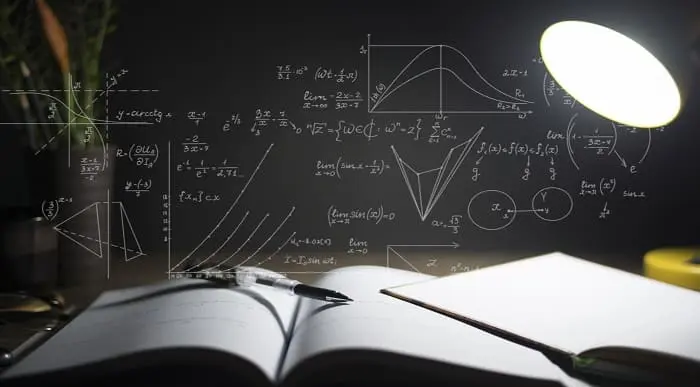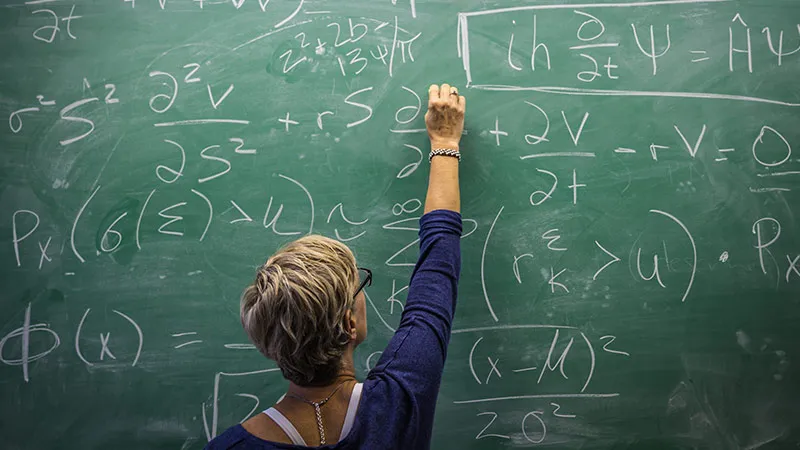Mathematical
What is the difference between Maths and Further Maths? Details Explain
Maths is a language which is equally important for both humans and computers. It is the language of the technically advanced future. Being such an important subject, mathematics usually attracts the attention of the learners willing to build their careers in the related domain.
Those having a keen interest in getting into this field usually ask a common question, “What is the difference between maths and further maths?”
Single mathematics, commonly known as A Level maths, is primarily key maths that covers standard mathematical ideas such as calculus and trigonometry. Further mathematics broadens your awareness and knowledge of mathematical ideas, particularly in ‘applied’ domains like statistics or mechanics. Generally, A Level further math has more challenging and complex content than the usual A Level mathematics.
In this blog, we will provide you with an understanding of both math and further math by comparing the essential aspects of both domains.
So, check out this blog to know more.
Table of Content
- What is Maths?
- Why Study Maths A Level?
- How to Do Well in Maths A Level?
- What is Further Maths?
- Does Further Maths Count as an A Level?
- Different Types of Math
- Differences Between Maths and Further Maths
- Importance of Further Maths
- Should I take Math or Further Math?
- Is Further Math Harder than Normal Math?
- What is Further Maths Equivalent to?
- What Jobs Require Further Maths?
- Does Further Maths Have Calculus?
- What Type of Qualification is Further Maths?
- Conclusion
- What to Read Next:
What is Maths?
According to Live Science, mathematics is the area which is concerned with the logic of shape, quantity and order. In every aspect of our life, there is always the existence of mathematics.
It is there in everything we use, including mobile devices, computers, software, ancient and modern architecture, art, money, engineering, and even sports. A Level Maths (sometimes known as single maths) consists primarily of core mathematics, including calculus and trigonometry.
Why Study Maths A Level?
Studying A Level provides you with a great platform, even if you do not go on to chase it at the degree level. It is one of the Russell Group’s ‘facilitating topics,’ which means it will assist you in a wide range of university degrees, allowing you to pursue a variety of vocations. The following are some of the reasons why you should take maths A Level:
- Math at A Level helps you to obtain your academic objectives. It will help you to establish your educational goal. Many undergraduate university degrees require it, and it might also broaden your possibilities if you choose to pursue postgraduate education.
- Math at A Level also helps to improve your employability. As we know, mathematical talents are transferable and in demand in various fields.
- Qualifications in mathematics can lead to exciting, significant, and well-paid employment. Math skills are functional in practically any profession, but they are extremely important in some industries, such as statistics, technology, engineering, finance etc.
How to Do Well in Maths A Level?
To do well in maths A Level, it is essential to follow some unique techniques given below:
- You can begin studying the subject and conducting short research on the course description before starting the course.
- You can analyse the previous subjects related to A Level which will help you and create influence from another subject.
- You can ask for help from a skill worthy person and keep yourself motivated.
- You can use your classroom notes to help you understand each topic.
If you wish to become better at maths then you should definitely give a read to our blog.
What is Further Maths?
We’re all a little perplexed when it comes to identifying further mathematics. It broadens your perception and understanding of mathematical ideas, particularly in ‘applied’ domains (like statistics or mechanics). These lead more directly to finance or engineering degrees.
Are you looking for a Functional Skills Maths Course?
Does Further Maths Count as an A Level?
Yes, further mathematics is equivalent to an A Level. However, the students learning this are typically placed in distinct A level subjects with only students who have received the best GCSE maths grades.
Different Types of Math
Different types or different sorts of math include the following.
Arithmetic
Arithmetic is one of the earliest mathematics and is used for most basic types of maths. Operations such as addition, subtraction, multiplication, and division are used to deal with numbers in various ways.
These functions answer more sophisticated problems involving numbers, such as exponents and various other calculations. For example, statistics, physics, informatics, accounting, computer programming, and data analysis are all vocations that involve arithmetic.
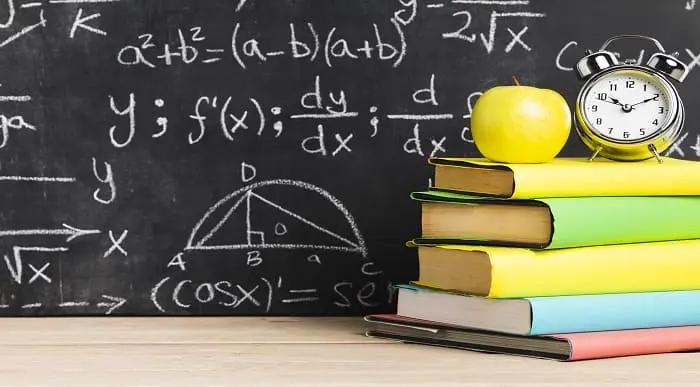
Functional Skills Maths Level 2
- Accredited Courses
- Tutor Support Included
- 3 Installment Plan at checkout
- 14 Days Money Back Guarantee
Algebra
Algebra digs into math symbols. The numbers aid in the evaluation of methods and rules, as well as in finding unknown quantities. The subject typically aids logical thinking and teaches you how to deconstruct situations. Science, chemistry, physics, forensic science, astronomy, medicine, and geology all use algebra.
Geometry
The properties of forms, sizes and figures are the area where geometry is concerned. The main subjects of geometry include angles, points, lines and surfaces. It is also applied in other fields such as architecture, aerodynamics, and engineering. Furthermore, geometry is crucial not just for the physical world but also for astronomy.
Differences Between Maths and Further Maths
According to Wikipedia, “Advanced Level (A Level) Mathematics is a qualification of further education taken in the United Kingdom (and occasionally other countries as well). In the UK, A Level exams are traditionally taken by 17-18 year-olds after a two-year course at a sixth form or college.”
Students who want to study a mathematics-based degree or related degree subjects like physics or computer science commonly take Advanced Level Further Mathematics.
One of the common differences is that mathematics at A Level includes pure mathematics, which encompasses both mechanics and statistics. A level further mathematics includes pure mathematics, further mechanics, and further statistics.
Importance of Further Maths
If you want to pursue a math undergraduate degree, then it can be beneficial for you to understand the difference between maths and further maths. Further mathematics plays a vital role by providing broader knowledge and understanding of mathematical assumptions, especially ‘applied’ areas, such as statistics. These lead more directly to finance or engineering degrees.
A Level further math is also beneficial while preparing for a degree in Mathematics. For many top universities and colleagues, it is highly desirable, especially for mathematics, science and engineering courses, along with computing and economics.
Should I take Math or Further Math?
When considering the differences between math and further math or deciding which path to take, it’s important to remember that you won’t be allowed to do further math unless you’ve already taken math or have an A Level in math. As we know that A Level mathematics covers standard mathematical assumptions and further math provides the proper knowledge of mathematical techniques such as statistics or mechanics.
If you wish to study maths at university, further math is beneficial, although it is not normally needed.
Is Further Math Harder than Normal Math?
Many of us wonder, how hard is further maths? However, if you know that further mathematics is a more complicated version of your regular math, you would rather ask, “how hard is A Level further math?” The answer is that the A Level further math is fairly challenging.
When we find out the difference between maths and further maths, we will understand that further mathematics is generally more complex than standard math. Along with this, Further math is used for a variety of purposes as compared to normal mathematics.
You should study further math if you have the desire or ambition to pursue a difficult degree (A Level Further Math) or if you are interested in studying mathematics as an undergraduate.
Further math is so hard that many students tend to avoid it. It is only taken by the most academically gifted and hardworking students, especially those who are passionate about the topic.
Further maths A Level is known as one of the toughest A levels. A student who wants to apply for further mathematics A Level should only apply if they are confident that they have good skills in mathematics.
Top Courses of this Category
What is Further Maths Equivalent to?
Further mathematics is a course taken in addition to the standard mathematics AS-Level and A Level courses in the United Kingdom.
Two A levels are comparable to further mathematics. It includes the complete A Level as well as the more difficult further math A level.
A Level further math can only be studied as a fourth subject along with A Level math and two other subjects. Further Maths extends ideas from A Level maths and as a result, the content has similarities to A Level Math, but with extra components.
What Jobs Require Further Maths?
A person can pursue a profession in a variety of fields after earning a mathematics degree. There will be numerous scopes for candidates, especially while getting a degree in further mathematics. Careers in Actuarial analyst, Actuary Chartered accountant, Data analyst, Data scientist, Investment analyst, Software engineer, and Statistician, among other fields, are available.
One of the important things for requiring a job while studying further mathematics is that many top universities prefer, if not demand, additional math for Mathematics, Science, and Engineering courses, as well as Computing and Economics.
Does Further Maths Have Calculus?
Generally, A Level mathematics includes calculus. As a result, mathematics uses it rather than advanced mathematics. This is another key distinction between math and further mathematics.
Univariate data, bivariate data, time series, number patterns, and business-related mathematics are all common topics in further maths.
What Type of Qualification is Further Maths?
Generally, students who received an 8/9 in GCSE Mathematics and completed the GCSE Further Mathematics programme in Year 11 should consider pursuing both Mathematics and Further Mathematics as A Level courses.
Further mathematics, as we all know, is a distinct A Level that can be especially beneficial to those who desire to pursue mathematically focused subjects in further education. Students who choose to pursue A Level additional math must do so concurrently with A Level Mathematics, resulting in the use of two option blocks.
FAQ
Should I take mathematics or further math?
Unless you’re already taking math or have an A level in mathematics, you won’t be able to take further math.
Is further math harder than normal math?
Yes. The content of the further math is much, much harder than normal math.
What is further math equivalent to?
Further math is equal to the standard mathematics AS-Level and A Level courses in the United Kingdom.
Is further math higher math?
For different institutions, the term “higher” indicates advanced level mathematics or further level mathematics.
What jobs require further math?
Careers in Actuarial analyst, Actuary Chartered accountant, Data analyst, Data scientist, Investment analyst, Software engineer, and Statistician among other fields, are available for candidates who have studied further math.
Is further math necessary?
Yes. Many top universities require further mathematics as a prerequisite for their mathematics courses.
Is further math difficult?
Yes. it is so hard that many students tend to avoid it.
Is further math easy?
No. Further mathematics is challenging, especially considering that most of the state’s students are studying the subject.
Should you do further math A Level?
You can study further mathematics A Level as it gives you the opportunity for a degree in Mathematics.
Does further math have calculus?
Mathematics utilises calculus but not further mathematics. Further math subjects include univariate data, bivariate data, time series, numerical patterns, and business-related mathematics.
Is further math a GCSE or A Level?
Further Mathematics is a GCSE topic designed for students who want to study mathematics beyond the Higher Tier GCSE syllabus and can work at a higher level.
Conclusion
In short, we can understand that A Level mathematics is the basic or main math. On the contrary, further math provides us with a broad understanding of various mathematical principles. I hope this blog has clarified and helped you to recognise the difference between maths and further maths.
What to Read Next:
- What is a Sum Maths – Importance and Use of Sum Maths
- Is A-Level Maths Hard? Details About A-Level Maths
- Maths Prefixes and Suffixes – Definition, Example and Calculation
- What Does a Mathematician do – Working Areas and Responsibilities
- What is Modal in Maths? – How to Calculate and Formula?
- How to Get A and A* in Maths A Level – The Ultimate Guide
- What is an Outlier Defined as A Level Maths?



